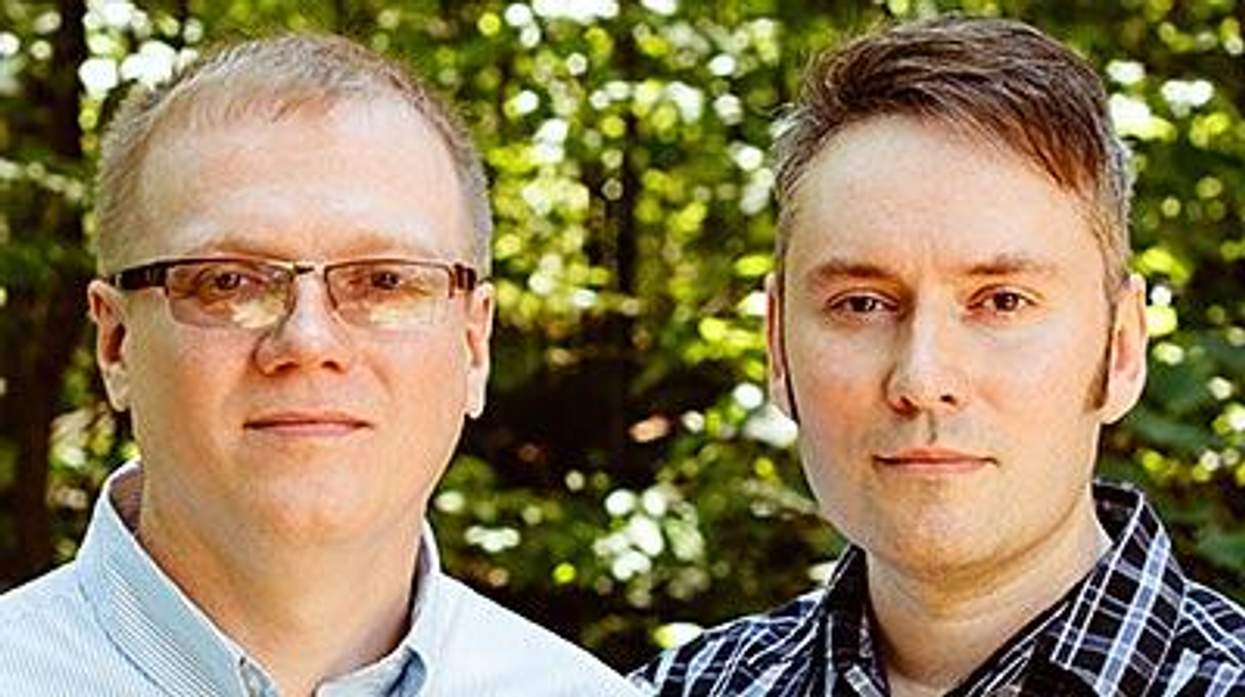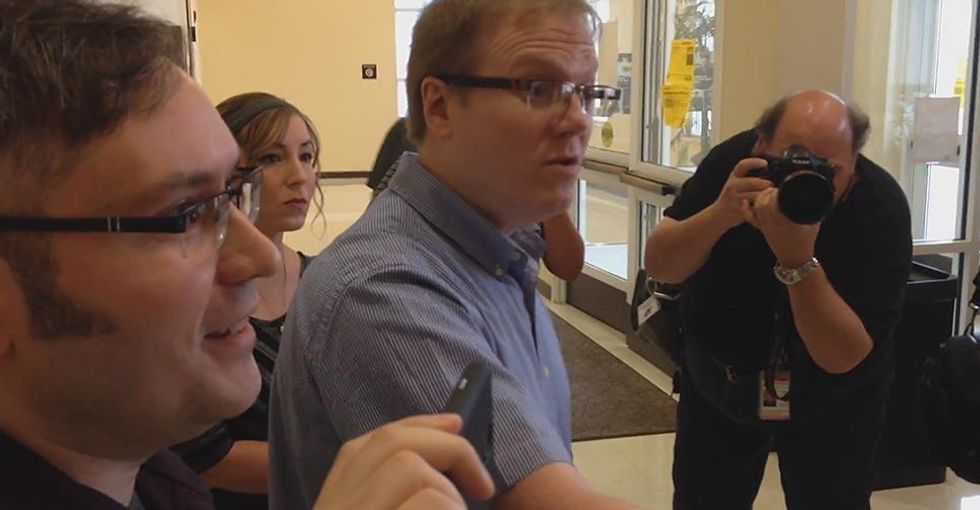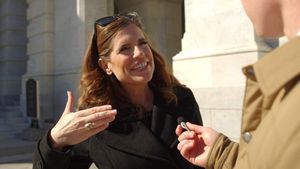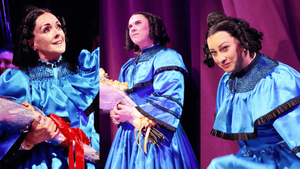David and I have called Rowan County, Ky., our home for 11 of the 17 years that we have been in a relationship. We bought our home in 2005, and we both finished our degrees at Morehead State University. We have faced our share of struggles and setbacks, but nothing quite like our current fight to obtain a marriage license that is still being denied by the Rowan County clerk. After the Supreme Court ruling June 26, Rowan County Clerk Kim Davis stopped issuing marriage licenses to all couples due to her belief that a marriage is only a union between one man and one woman. When she told us this, we felt degraded and humiliated, and we were shocked that an elected official that we had voted for was using her position of power to deny us our constitutional rights.
For many, Rowan County is more progressive than the surrounding eastern Kentucky counties. This is due in large part to the influence of Morehead State University. People graduate, find work either in town or at the university itself, and make their homes here. They fall in love, buy property, and live out their lives in a fairly quiet and peaceful community. Certainly, discrimination and bigotry exist, but they are not as overt here as they are in other places. However, we still have to avoid sharing our relationship status with strangers and friends until we know we can trust them. We grew up in an era when public acceptance of LGBTQI people was not at the level it is now, and we have remained cautious. We feel that our relationship status is our private business and for us to share at our own discretion. Years of experience havd taught us that you can't always be open about your sexuality if you want to obtain good housing, a job, or other opportunities in the area.
The question of who is judging us is always there. The truth is that being gay is an obstacle that has to be worked around in order to function in this part of the country. When obtaining a marriage license, we have no way of working around it, and nor should we have to. The denial of our right to marry has not afforded us our former autonomy. Our experience at the county clerk's office has stripped us of both our privacy and dignity. Releasing the footage of ourselves being denied our rights is one of the few forms of power we have to reveal and fight against discrimination. The public can watch the exchanges for themselves, and we want people to make up their own minds.
Right now, bills are being drafted in our state that would seek to accommodate a state official's religious beliefs if they object to doing a part of their job that they find objectionable. One option would be to create an online system where marriage licenses can be registered with no interaction from a clerk. This has been compared to the way hunting and fishing licenses can be obtained online. This, of course, does not support the claims by those who say that marriage is a sacred union that should be blessed and held with reverence. If a getting a marriage license is as frivolous as obtaining a fishing license, then why has the resistance to marriage equality been so intense? It seems opponents of marriage equality want to have it both ways.
In addition, accommodations for religious objections do not address the responsibility of state officials to do their job. There are people who may choose to object to issuing a marriage license for all sorts of reasons that would further unravel constitutional rights. What remedy do citizens have when their rights are denied based on an individual's objection to some aspect of their identity? Currently in our county, we are facing a situation where no one can reprimand or remove a clerk for denying couples a license to marry unless they are sued. Requests by the governor and judge executive to issue licenses to all couples have been ignored, and there is confusion as to whether impeachment or recall elections are even viable based on Kentucky law. The Rowan County clerk needs to be held accountable for ignoring the Supreme Court ruling. A government official cannot and should not be allowed to violate the law and other people's constitutional rights due to personal religious beliefs.
The last time we were at the clerk's office, we were told to contact Liberty Counsel in regard to the issuance of marriage licenses. How is it that our deputy clerks are legally allowed to refer people to a "Christian ministry funded by tax-deductible donations" in order to obtain their civil rights? Rowan County is our home, and outside interest groups should not be allowed to co-opt our local government and disrupt our citizens' lives.
 Above: Moore and Ermold trying to obtain their marriage license
Above: Moore and Ermold trying to obtain their marriage license
We know that public opinion is divided on the Supreme Court's ruling, and we were reminded of this in a recent joint interview with Rowan County's judge executive, Doc Blevins. He suggested that everyone is entitled to their beliefs, and that there are two sides of this issue. However, there are also two sides of the law -- the right side and the wrong side. Rowan County Clerk Kim Davis and her office are on the wrong side of the law, and it would seem that Judge David Bunning -- who ruled last week that Davis must provide marriage licenses to everyone -- sees things similarly. Marriage equality has already been decided in our country, and the Rowan County Clerk's personal religious beliefs do not abrogate her responsibility to uphold her oath of office.
Lastly, Judge Blevins and the Rowan County clerk's office told us multiple times that we should drive to another county and file for a marriage license elsewhere. To us, this is like saying, we don't want you here, and we will not serve you in our county. We shouldn't have to drive to another county just to claim the marriage rights we've waited years for our government to grant us. Having to do so would further demean us and undermine our sense of dignity. It is not an acceptable solution, and we will continue to fight for our right to marry in Rowan County.
DAVID V. MOORE is a graphic designer at Morehead State University and a freelance artist. DAVID ERMOLD is an assistant professor of English at the University of Pikeville and teaches developmental writing and speech.


 Above: Moore and Ermold trying to obtain their marriage license
Above: Moore and Ermold trying to obtain their marriage license

































































Charlie Kirk DID say stoning gay people was the 'perfect law' — and these other heinous quotes